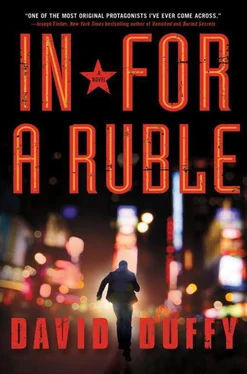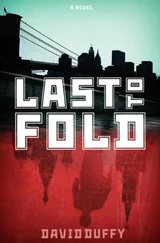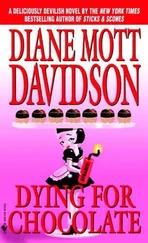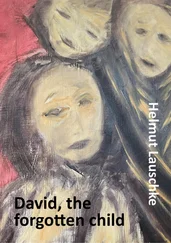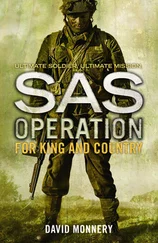“Krisztina?”
“Uh-uh. Izabela.”
“What happened to Krisztina?”
“Nothing lasts forever.”
Or in his case, more than a couple off months.
“Izabela—let me guess. Czech?”
“Close. Slovakian. Bratislava.”
“Six feet, blond, legs up to her ears for a change?”
“Jealous.”
Foos is a certified genius, but a decidedly odd-looking guy with a personality to match. Yet he dates an unending series of models, all tall, most blond, most from Eastern Europe, each more drop-dead gorgeous than the last. It’s a continuing source of mystery—and envy—how he manages.
“You and your pal Leitz ever discuss his family?”
“Uh-uh.”
“They’ve got a lot of issues, as they say these days.”
“Not surprised.”
“Why?”
He looked up. “What family doesn’t?”
The loud “arrrr-oooo-gahhhh” of our door horn echoed through the office. One of Foos’s jokes—he thinks it’s hilarious. So does Pig Pen, who squawks “Boss man!” at full volume whenever it goes off. Two men stood outside holding a solid-looking wooden crate. The return address was Leitz’s. It took half an hour and another glass of vodka to yank out the nails and get it open. When I unwrapped the painting inside, Pig Pen took one look and said, “Russky.”
“That’s right, Pig Pen. Famous Russky. Ilya Repin, painter. How did you know?”
He gave me his ‘I’m not the dope you think I am’ look. “Russky.”
“Takes one to know one,” I said. “Maybe you’re part Russian, Pig Pen.”
“Parrot,” he said definitively, meaning, I suppose, that he’s a citizen of the world.
“You like the painting?”
He took a minute to look it over. “Eldo.”
Eldo’s the top rank in his hierarchy. I’d taken him for a ride once in my car, a 1975 Cadillac Eldorado convertible I call the Potemkin, with the top down. We’d toured the 1010 WINS “jam cams” around town, and he thought he’d ascended to parrot paradise. Eldo stuck.
“You have a good eye, for a parrot,” I said. “I’ll hang it here for now, where you can see it.”
Pig Pen seemed happy with that arrangement, but I was thinking Repin deserved a better setting than a sterile office wall. I was at the door, headed for 140 West Forty-eighth Street—a fruitless errand to see if Timid and Bold were still around—when something tugged.
Some issues with my son at his school, Leitz had said.
Foos was packing his messenger bag.
“I want to do a little research on the Leitz kid.”
“Wondered when you were going to get around to that.”
“You know something I don’t?”
“That strange computer activity corresponds with school vacations. I told you that.”
I was going to point out he’d said nothing of the sort, but he was already halfway across the floor, bidding good night to Pig Pen. Then it occurred to me that in his way, he had. He’d told me August, November, and December—summer, Thanksgiving, Christmas. That’s Foos. Like his creation, he connects data—and expects the rest of us to be as quick as he is.
I fired up the Basilisk and fed in Andras Leitz. I don’t know what I was looking for, but had I been given any notice of what I’d find—and where it would lead—I’d have shut down the computer, packed up the Repin, sent it back, and sought refuge with one of my Mexican friends south of the border.
It’s not a proverb that I know of, but it should be—you can’t peel back the layers of an onion without drawing tears.
Things started innocently enough. Andras Leitz presented a typical profile of a typical child of wealthy, New York parents—private school, generous allowance, Caribbean Christmases, too many material possessions. Nothing surprising there. Until the beast served up accounts at twelve different banks with balances aggregating $11.2 million.
One account, at Citi, held $2,200 and was the recipient of what appeared to be a regular allowance, a hundred dollars a week, via electronic transfer from his father’s account at the same bank. The others were funded by monthly transfers from a corporate account at State Street Bank in Boston. Those had been increasing steadily over time and now averaged about $20,000 each. They stretched back two and a half years. The most recent was a week earlier—$22,887.63. In all, they totaled just over $7 million. The other $4 million had been deposited, again electronically, in two installments, one in August ($1.5 million) and one at Thanksgiving ($2.5 million). The source of these two transfers was a bank in Estonia. And, as Foos said, the timing lined up with school vacations.
Hard to see how a seventeen-year-old came into that kind of money. Hard to guess what he was up to in the Baltics. Perhaps he copied a few of his old man’s trades. The Basilisk guffawed at that idea. So did twenty years of Cheka training and experience. But even assuming for the sake of argument that he was as bent as a world-class crook, how was a high school kid pulling down that kind of dough? I wondered, not idly, whether the elder Leitz had any inkling of his offspring’s success.
Back to the data. The Boston connection was explained, possibly, by the fact that Andras was a student at a boarding school in Gibbet, Massachusetts, fifty miles west of the capital, with the same name as the town. Tuition, room and board were setting his old man back $48,000 a year. Andras could have easily picked up the tab himself. I brought up the phone records. Calls to his father in New York, mother in Minneapolis, and a handful of what appeared to be friends. Most went to a woman named Irina Lishina. That surname rang a bell, but I couldn’t place it.
I sent the beast back with a new assignment. He (I’ve always assumed he’s a he) came back with another profile.
Irina was also a student at the Gibbet School. Like Andras, she lived in New York City, at 22 East Ninety-second Street, with her mother, Alyona, and her stepfather, Taras Batkin. That name rang a bell too.
Google jogged my memory. Batkin was chairman of the Russian-American Trade Council. At the time I left the Cheka, he’d been a fast-rising officer, a comer. We’d never met, but he got talked about a lot. In more recent years, he was rumored to be a Kremlin fixer, one of those people trusted with looking after the government’s connections with private enterprise—legal and otherwise. Irina’s father was Alexander Lishin, and I remembered why I recognized his name. He was a regular fixture on Ibansk.com—a crook, major league. I could access more information on them at home. I went back to the girl.
She had a BMW 328i registered in her name in New York. She carried three credit cards with aggregate average monthly charges of about $900. Her checking account contained just over $10,000. Typical child of a typical Russian official—if said official is in a position to have his hand in all kinds of extracurricular enterprises.
That was before the savings and brokerage accounts. Like Andras, more than a dozen spread among eight banks as well as Fidelity, Schwab and E-Trade. They totaled more than $11 million and were fed by the same corporate account at State Street Bank. Just like him, she had two deposits from Estonia, $1.5 mil in November and $2.5 million a month later. Russia’s producing some very accomplished young women these days, but a self-made high school multimillionaire seemed a reach. Unless she’d joined the family firm. That seemed a bigger reach. And what was Andras doing?
I went home to continue my research, after the detour to West Forty-eighth Street. Timid and Bold were nowhere among the gathering cleaners. None of those getting ready for work professed ever to have heard of them. I wasn’t surprised. Having gotten everything they could from both Nosferatu and me, they’d doubtless decided another cleaning job at another building—probably in Pittsburgh—was in order. Their countrymen were quick to forget all about them.
Читать дальше
